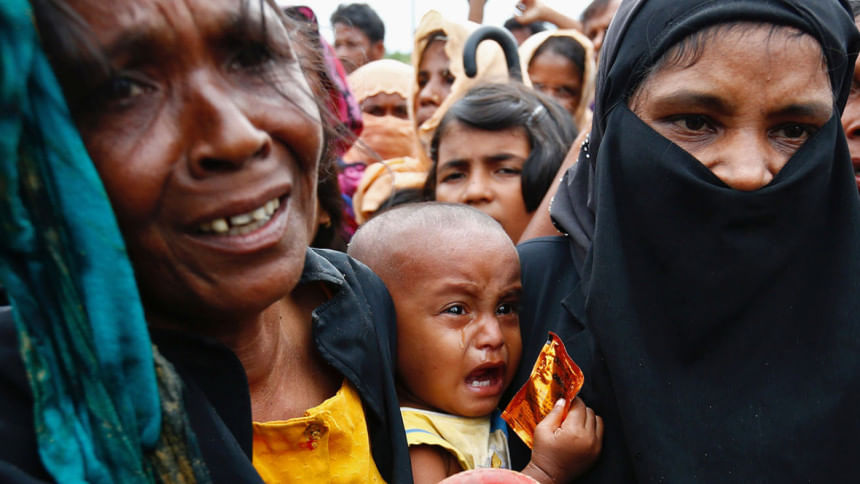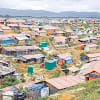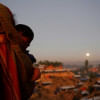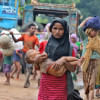Midwives come to aid of pregnant Rohingya women

Dozens of midwives have been deployed to camps in Bangladesh to deliver babies and help young mothers among the hundreds of thousands of Rohingya refugees who have fled across the border from Myanmar and are now living in squalid settlements.
About 35 midwives trained by the United Nations Population Fund (UNFPA) to work in crisis situations have been attending to women and girls in the two government-run refugee camps in Cox's Bazar over the past few weeks, according to UNFPA.
The midwives are providing emergency services including for sexually transmitted disease and sexual violence, as well as caring for pregnant women and young mothers.
"The sheer number of people pouring in, the magnitude of the situation is quite overwhelming," said Sathya Doraiswamy, chief of health at UNFPA.
"Our midwives are used to working in more stable situations, with other Bangladeshi women; there is a language issue and other challenges, but they are facing up to them," he told the Thomson Reuters Foundation by phone.
The midwives have delivered about 200 babies since the recent influx of refugees began Aug. 25, Doraiswamy said.
More than 400,000 Rohingya Muslims have fled a Myanmar military offensive that began after a series of guerrilla attacks on Aug. 25 on security posts and an army camp in which about a dozen people were killed.
UNICEF estimates that an "unprecedented" 60 percent of new refugees in Bangladesh are children.
Besides sexual violence, early marriage is a risk for Rohingya refugee girls.
Earlier this year, a UN survey found that over half of Rohingya girls who fled to Malaysia, India and Indonesia became child brides.
In Bangladesh, which has been hosting hundreds of thousands of Rohingya refugees since the 1990s, about two-thirds of the refugees in the camps are women and girls, including many pregnant women and young mothers, Doraiswamy said.
"The people coming in are hungry, thirsty, sick, they have been walking for days and they are emotionally traumatised," said Rondi Anderson, UNFPA's midwifery specialist.
"Still, pregnant women and young mothers in the camp know they have a safe space and good care with the midwives."
The midwives are part of a national programme backed by the Bangladesh government and supported by UNFPA and the World Health Organization to improve maternal health and reduce infant mortality, particularly in the country's rural areas.
The midwives at the camps have been trained for crisis situations including floods.
"There are many challenges. But even in these difficult circumstances, there is some happiness for everyone at the safe birth of a child," said Anderson.

 For all latest news, follow The Daily Star's Google News channel.
For all latest news, follow The Daily Star's Google News channel. 








Comments